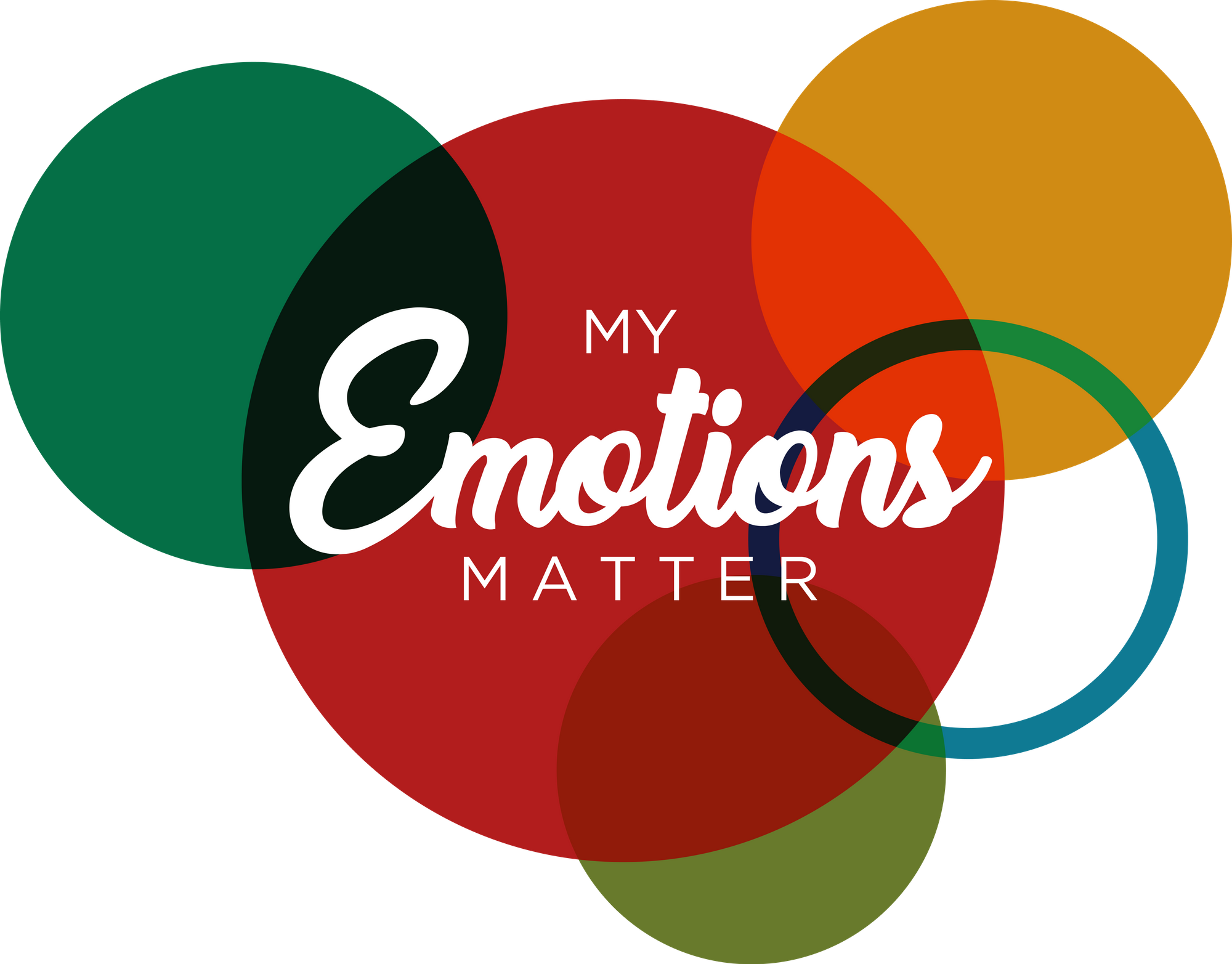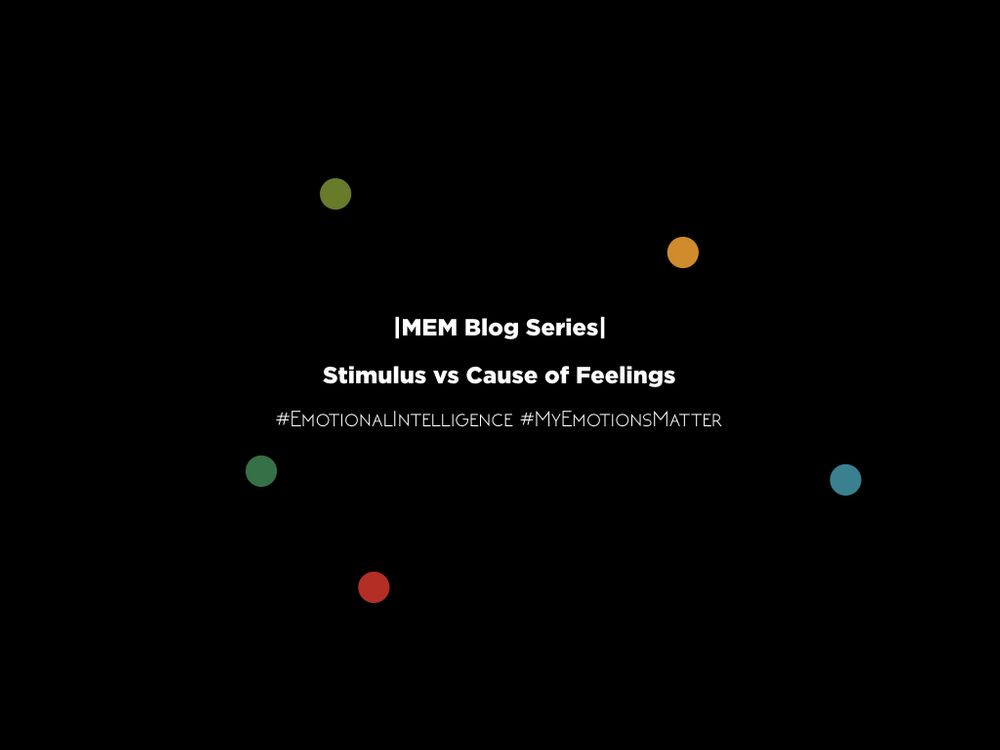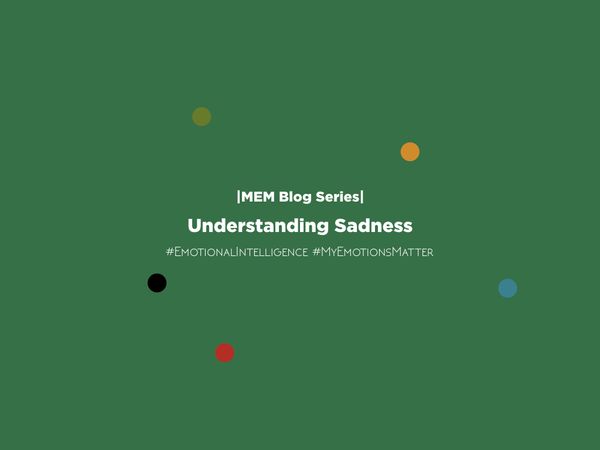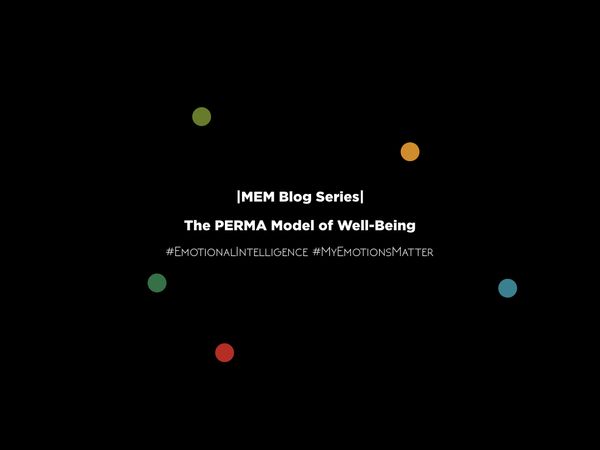Stimulus vs Cause of Feelings
It’s your birthday. Your friends throw you a surprise party. How do you feel? Most likely you’d feel pleasurable feelings.
A year later, it’s your birthday again. The same friends throw you a surprise party. How do you feel? Is it necessary that you genuinely feel pleasurable feelings like you did the year before? Could there be a possibility that you were needing solitude and so were secretly hoping that your friends wouldn’t ‘bother’ you this time? In that case, you’d most likely feel unpleasant feelings even though the action on the part of your friends remained the same.
Let’s consider another situation. You and your friend had a plan to go on a road trip. The friend cancels at the last minute. How do you feel? Perhaps frustrated and disappointed. But could there be a scenario wherein your friend cancels but instead of feeling frustrated and disappointed, you actually feel relieved? This could well be the case if you were the one having to cancel because of some issues at home. You were scared your friend wouldn’t understand. Just as you were thinking of a nice way to tell him, he calls you first.
We often confuse ‘stimulus’- the words and actions of others with the cause of our feelings. How we feel can be triggered by other people’s actions, but the cause is our own underlying needs, values, and expectations. This is best explained by how the same action (a teacher’s comment directed at the whole class) might affect one student but another student might not be bothered at all.
"We don't respond to what happens. We respond to our interpretation of what happens." - Gabor Mate
We experience unpleasant emotions when we cannot meet some of our needs. Your friend canceling the road trip stimulated you to feel frustrated and disappointed. The cause of those feelings was that your needs for fun, adventure, companionship, and reliability weren’t met.
Quite similarly, we experience pleasant emotions when we are able to meet our needs- not because someone made us feel so. In the second instance, the stimulus is the same as earlier (your friend canceling), but the cause of your pleasant feelings such as relief was because of your need for ensuring your friend would understand and wouldn’t go ahead without you.
In our interactions with people, we either blame them or praise them for making us feel a certain way. 'Don't piss me off.' 'You make me joyful.' 'I feel sad because of you.' 'You make me feel worthy of love.' In all of these expressions, we are pointing at other people for making us feel angry, sad, joyful, and worthy. The fact is that our needs are responsible for our feelings, not other people's actions or their words.
Your partner takes you out on a date. What emotions are you likely to feel? Joyful, Glad, Thrilled? While your partner might have helped stimulate these feelings. The actual cause of your feelings might root in one or more of your needs like closeness, love, fun, laughter.
You ask your parents for money to go on a trip with your friends, and they say no. You might think- "My parents are always looking for reasons to annoy me." The fact is that your parents didn't give you money; as a result, you felt frustrated or annoyed because you could not meet your need for entertainment or connection with your friends. Your parents' action is not the cause of your annoyance; it is only the stimulus.
The problem with thinking that other people cause us to feel certain emotions- makes us emotionally dependent on them and also stops us from assuming responsibility for our interpretation of events in our lives. We become reactive, especially when our needs aren’t met and therefore start blaming, judging and criticizing others.
Let's try to differentiate between some stimuli and causes of feelings in our daily experiences.
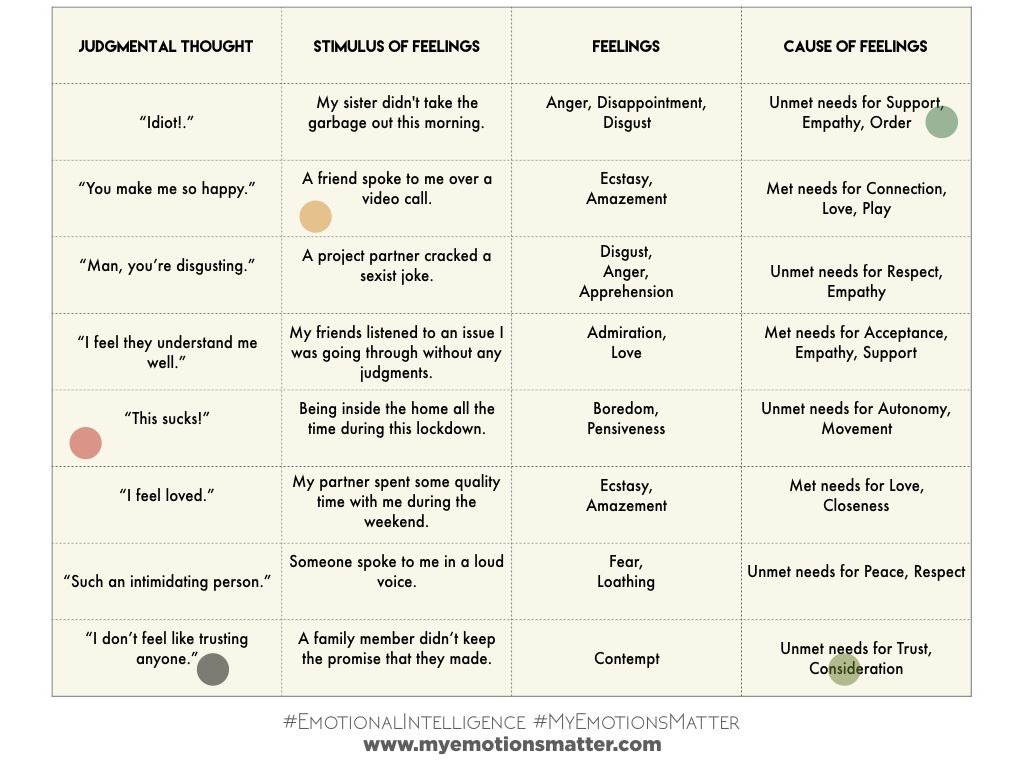
Being emotionally intelligent means developing the capacity to distinguish between our judgmental thoughts, how we actually feel, the stimulus of the feeling, and the cause behind the feeling. This insight can be the difference between getting stuck in blame, shame, guilt and/or resentment and resolving differences peacefully.
